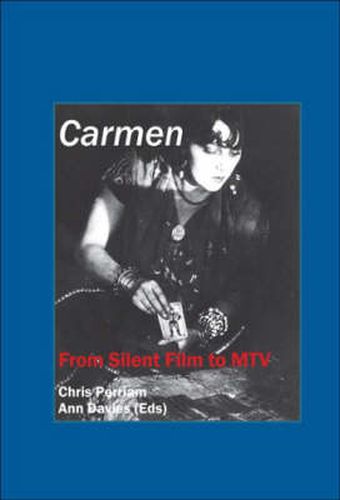Readings Newsletter
Become a Readings Member to make your shopping experience even easier.
Sign in or sign up for free!
You’re not far away from qualifying for FREE standard shipping within Australia
You’ve qualified for FREE standard shipping within Australia
The cart is loading…






Since Prosper Merimee and Georges Bizet (with his librettists Meilhac and Halevy) brought the figure of the Spanish Carmen to prominence in the nineteenth century an astonishing eighty or so film versions of the story have been made. This collection of essays gathers together a unique body of scholarly critique focused on that Carmen narrative in film. It covers the phenomenon from a number of aspects: cultural studies, gender studies, studies in race and representation, musicology, film history, and the history of performance. The essays take us from the days of silent film to twenty-first century hip-hop style, showing, through a variety of theoretical and historical perspectives that, despite social and cultural transformations-particularly in terms of gender, sexuality and race-remarkably little has changed in terms of basic human desires and anxieties, at least as they are represented in this body of films. The conception of Carmen’s independent sexuality as a source of danger both to men (and occasionally women) and to respectable society has been a constant. Nor has sexual and ethnic otherness lost its appeal. On the other hand, the corpus of Carmen films is more than a simple recycling of stereotypes and each engages newly with the social and cultural issues of their time.
$9.00 standard shipping within Australia
FREE standard shipping within Australia for orders over $100.00
Express & International shipping calculated at checkout
Since Prosper Merimee and Georges Bizet (with his librettists Meilhac and Halevy) brought the figure of the Spanish Carmen to prominence in the nineteenth century an astonishing eighty or so film versions of the story have been made. This collection of essays gathers together a unique body of scholarly critique focused on that Carmen narrative in film. It covers the phenomenon from a number of aspects: cultural studies, gender studies, studies in race and representation, musicology, film history, and the history of performance. The essays take us from the days of silent film to twenty-first century hip-hop style, showing, through a variety of theoretical and historical perspectives that, despite social and cultural transformations-particularly in terms of gender, sexuality and race-remarkably little has changed in terms of basic human desires and anxieties, at least as they are represented in this body of films. The conception of Carmen’s independent sexuality as a source of danger both to men (and occasionally women) and to respectable society has been a constant. Nor has sexual and ethnic otherness lost its appeal. On the other hand, the corpus of Carmen films is more than a simple recycling of stereotypes and each engages newly with the social and cultural issues of their time.